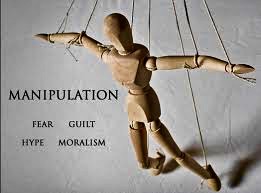Independent Legal Advice
Modonese v Delac Estate 2011 BCSC 82 has a very interesting discussion on whether or not independent legal advice will rebut a presumption of undue influence where that presumption might exist.
The function of independent legal advice is to remove a taint that, if not removed, might invalidate a transaction.
The nature and circumstances will dictate what constitutes adequate independent legal advice for purposes of a given situation Cope v Hill , affmd ABCA 32 ,leave to appeal to SCC refused 2007 SCCA No.138.
The following exerpts are from Modonese:
[121] In Stewart, Punnett J. followed Coish v. Walsh, 2001 NFCA 41, 203 Nfld. & P.E.I.R. 226 [Coish], where Wells C.J.N, addressed the issue of whether independent advice rebuts the presumption of undue influence as follows:
[23] The trial judge also correctly set forth the law respecting the manner in which such a presumption may be rebutted. In particular, he identified, from the comments of Green J., in [Fowler Estate], factors to be taken into account in considering whether or not evidence of legal advice given to the granting party is sufficient to rebut the presumption. At paragraph 24 of [Fowler Estate], Green J. identified factors which may affect the character of legal advice to be as follows:
- Whether the party benefiting from the transaction is also present at the time the advice is given and/or at the time the documents are executed.
- Whether, though technically acting for the grantor, the lawyer was engaged by and took instructions from the person alleged to be exercising the influence.
- In a situation where the proposed transaction involves the transfer of all or substantially all of a person’s assets, whether the lawyer was aware of that fact and discussed the financial implications with the grantor.
- Whether the lawyer enquired as to whether the donor discussed the proposed transaction with other family members who might otherwise have benefited if the transaction did not take place.
- Whether the solicitor discussed with the grantor other options whereby she could achieve her objective with less risk to her.
In Cope, Rooke J. provided the following summary of the law concerning independent legal advice where an allegation of undue influence is raised:
210 The case law identifies two types of independent legal advice:
- advice as to understanding and voluntariness; and
- advice as to the merits of a transaction.
The two types may overlap such that advice as to understanding the nature and consequences of a transaction may well constitute, at least in part, advice as to the merits of the transaction.
211 Focusing on the first type of independent legal advice, in Gold, a majority of the
Court, per Sopinka J., observed that independent legal advice addresses two primary
concerns, namely, that a person understands a transaction and that a person enters into
a transaction freely and voluntarily. Sopinka J. stated at para. 85:
Whether or not someone requires independent legal advice will depend on two principal concerns: whether they understand what is proposed to them and whether they are free to decide according to their own will. The first is a function of information and intellect, while the second will depend, among other things, on whether there is undue influence.
212 Focusing on the second type of independent legal advice, in Corbeil, Kerans J.A.
reasoned at paras. 12-14:
I distinguish attendance on execution from advice about the wisdom of entering into the agreement. The term “independent legal advice” has a very specific meaning in law. The duty of advising counsel has been summarized in Halsbury’s Laws of England (4th Ed.), vol. 18, para. 343, at p. 157:
“The duty of the independent adviser is not merely to satisfy himself that the donor understands the effect of and wishes to make the gift, but to protect the donor from himself as well as from the influence of the donee.A solicitor who is called upon to advise the donor must satisfy himself that the gift is one that is right and proper in all the circumstances of the case, and if he cannot so satisfy himself he should advise his client not to proceed.”
213 However, the adequacy of independent legal advice, or primacy of one type of independent legal advice over the other, is a situation-specific inguiry. In refusing to give effect to a contractual waiver of maintenance in Brosseau, the Court, in distinguishing between the two types of independent legal advice, stated at paras. 22-23:
The term “independent advice” is not one of precision. It may cover the situation in which a lawyer explains, independently, the nature and consequences of an agreement… It may extend, as it does in cases of undue influence, to the need to give informed advice…
We doubt that any hard and fast rule can be laid down and the peculiar circumstances of this case are not appropriate for the formulation of such a rule, in any event.
Mr. Frohlich stressed the comment in In re Coomber; Coomber v. Coomber, [1911] 1 Ch. [723], to the effect that independent advice does not mean independent approval. Again, we agree. While we stress this is not a case of presumed undue influence …, we agree with what is said in Wright v. Carter (1902), 87 L.T. 624, at 634 that fit! is not enough for an independent solicitor to be called in merely “to carry out the proposal which had been previously settled”.




